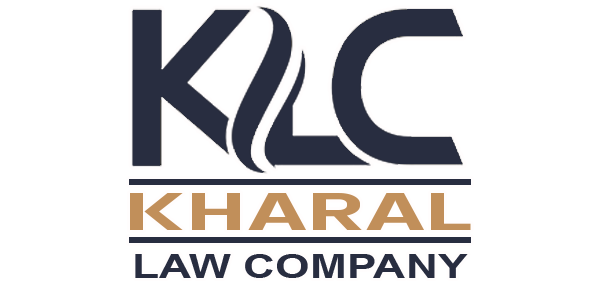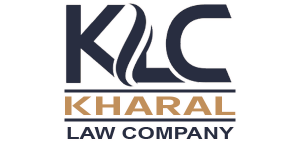Content

It is sometimes referred to as the Profit and Loss Statement. Of course, it’s always possible to handle bookkeeping internally. If your business chooses to keep this task in house, it’s best to stick to a predictable expense tracking schedule. Developing a bookkeeping routine prevents you from accidentally forgetting important steps in the accounting process. For example, say Jane uses the cash basis accounting method and sells a shirt on Wednesday.
Can I do my own bookkeeping?
If you're just starting out, are doing your books on your own and are still in the hobby stage, single-entry is probably right for you. It's simple, fast and good for really basic bookkeeping. Double-entry is more complex, but also more robust, and more suitable for established businesses that are past the hobby stage.
Determine and enter in source documents the financial effects of the transactions and other events of the business. Source documents are the starting point in the bookkeeping process. Wave– A top free accounting software to consider from the start of your search is Wave accounting software. Retained earnings are cumulative, which means that they’ll appear as a running total of money you’ve maintained since your business started. In all honesty, managing this account doesn’t take much time, so make sure you track it to see how much your business has grown. It’s a big part of calculating the costs of goods sold, which you subtract from the sales account to find your business’s gross profit.
Know your numbers to grow your business
This could become a problem if you are looking for financing from a bank or investors, as the books of the business look weaker than they are month to month. Most accounting software for small business owners offers free trials to give you a chance to try them out before making your subscription. Check its online features and bookkeeper services to ensure that the accounting software you choose suits your business style and your personal way of accounting. In the world of accounting software, a small business is one that can use out-of-the-box software without requiring extensive customizations. As a business grows, its accounting needs become more complex, and a custom enterprise resource planning system is often needed. Once you connect your business bank accounts and credit cards to a software, transactions show up in a queue and are grouped into categories.
- The company has made a name for itself by offering over 1,000 integrations through the Xero App Store.
- No matter your business type, these four bookkeeping fundamentals will help you stay on the right track.
- On the other hand, the bookkeeping service will provide accounting software and order of bank statements, expenses, accounts, and taxes at any time, day or night, for a set fee.
- Check its online features and bookkeeper services to ensure that the accounting software you choose suits your business style and your personal way of accounting.
- Instead of going through a filing cabinet of different documents, invoices, and receipts, you can present detailed records to your accountant.
- Remember, to get a small business loan, you’ll likely have to provide financial statements—a balance sheet and income statement at the very least, possibly a cash flow statement as well.
Remember, it’s crucial that each debit and credit transaction is recorded correctly and in the right account. Otherwise, your account balances won’t match—which means you don’t have an accurate understanding of where your business actually stands financially.
Bookkeeping Basics for Small Business Owners
One of Zoho’s biggest draws is its accessible, user-friendly interface. It comes with an easy-to-read dashboard that virtually any member of your organization can make sense of. It also offers benefits like excellent customer support and the ability to accept payments online. All told, Zoho is one of the better software for more casual users. Intuit Quickbooks might be the first resource that comes to mind when you hear the term, “small business accounting software” — and for good reason. Beyond its first-rate suite of capabilities, the program sets itself apart with elements like receipt capture and 24/7 chat support.
What is considered basic bookkeeping?
The process of bookkeeping involves four basic steps: 1) analyzing financial transactions and assigning them to specific accounts; 2) writing original journal entries that credit and debit the appropriate accounts; 3) posting entries to ledger accounts; and 4) adjusting entries at the end of each accounting period.
However, managing your books in a spreadsheet can be time-consuming and error-prone. If not managed properly, spreadsheet tabs may not be linked or up to date. In addition, you can’t integrate spreadsheets with bank statements, credit card reports, or payroll records. And if you need someone to help you manage the books, you may find it challenging to train them in Excel. As your business grows, your small transactions also increase. If you’re posting more transactions each month, entering data can make bookkeeping more difficult. The costs a small business or nonprofit incurs for bookkeeping will depend upon many variables.
Start Using Software Now
A sale is a transaction you receive cash for, also known as “money in.” When your revenues rise above $1 million, then you may need to hire an in-house bookkeeper for your company. Also, you won’t catch fraudulent transactions in a timely manner. Although the amounts may seem small, they can add up quickly for a small business. The Ascent is a Motley Fool service that rates and reviews essential products for your everyday money matters.

This includes taxes that need to be paid on behalf of employees, compensation and more. This is another simple one, as it’s simply all of the money you spend on products or services which you plan to sell to customers. Obviously, this bookkeeping for small business is one you need to know or should already know. Bookkeeping is the recording of financial transactions on a day-to-day basis. It helps to make sure that records of individual financial transactions are accurate and up-to-date.
What Every Architecture Firm Needs To Know About Accounting
If you don’t have accounting records, investors cannot determine the success or failure of your company. If you don’t use bookkeeping, the data may not be at your fingertips just when you need it.
Policy obligations are the sole responsibility of the issuing insurance company. If you need more help with your small business accounting, download the Beginner’s Guide to Accounting. This free ebook makes accounting simple and teaches you everything you need to know without confusing accounting jargon. Read our full Wave review or sign up for an account to test the software yourself to learn more. To learn more about this software, read our complete QuickBooks Self-Employed review.
Small business bookkeeping and accounting tips to stay on top of your finances
Small business accounting software ranges from $0 to $150 or more per month. Basic plans are in roughly the $0 to $40 per month range and are a great place to start.

Additional features such as advanced payments and payroll through Gusto are offered as plan add-ons. If you’re a busy small business owner with a million things to do, it’s easy to let bookkeeping fall by the wayside. You need to know your net profit in order to do your taxes, and to figure that out, you need to know your total income and expenses. And the only way to know that for sure is to have accurate, up-to-date books. Small businesses just starting out need to keep their records as accurately as any business, but they may not have the funds to hire a bookkeeper. Luckily, doing your own bookkeeping is usually not too difficult.


